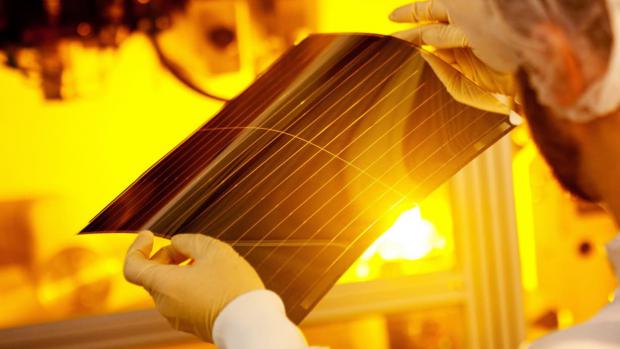
Breaking News
How Do Dumb People or Corrupt People Get Elected to Top Positions?
 Brand New Solar Battery With THIS Amazing Feature! EG4 314Ah Wall Mount Review
Brand New Solar Battery With THIS Amazing Feature! EG4 314Ah Wall Mount Review
 This New Forecast Just Got WAY Worse...
This New Forecast Just Got WAY Worse...
 S3E4: The Freedom Movement Funded Its Own Prison
S3E4: The Freedom Movement Funded Its Own Prison
Top Tech News
 The day of the tactical laser weapon arrives
The day of the tactical laser weapon arrives
 'ELITE': The Palantir App ICE Uses to Find Neighborhoods to Raid
'ELITE': The Palantir App ICE Uses to Find Neighborhoods to Raid
 Solar Just Took a Huge Leap Forward!- CallSun 215 Anti Shade Panel
Solar Just Took a Huge Leap Forward!- CallSun 215 Anti Shade Panel
 XAI Grok 4.20 and OpenAI GPT 5.2 Are Solving Significant Previously Unsolved Math Proofs
XAI Grok 4.20 and OpenAI GPT 5.2 Are Solving Significant Previously Unsolved Math Proofs
 Watch: World's fastest drone hits 408 mph to reclaim speed record
Watch: World's fastest drone hits 408 mph to reclaim speed record
 Ukrainian robot soldier holds off Russian forces by itself in six-week battle
Ukrainian robot soldier holds off Russian forces by itself in six-week battle
 NASA announces strongest evidence yet for ancient life on Mars
NASA announces strongest evidence yet for ancient life on Mars
 Caltech has successfully demonstrated wireless energy transfer...
Caltech has successfully demonstrated wireless energy transfer...
 The TZLA Plasma Files: The Secret Health Sovereignty Tech That Uncle Trump And The CIA Tried To Bury
The TZLA Plasma Files: The Secret Health Sovereignty Tech That Uncle Trump And The CIA Tried To Bury
Heliatek claims new conversion efficiency record for organic PV cells

In 2012 it claimed a then world record 10.7 percent conversion efficiency and said it was gunning for 15 percent in the near future. This week it announced it's halfway there, achieving a new record of 13.2 percent.
Heliatek says its R&D teams achieved the new record using a multi-junction cell and that the measurement was independently confirmed by Fraunhofer CSP's solar testing facility. While traditional silicon cells have achieved higher levels of conversion efficiency, organic cells are also pursued because they can be produced more cheaply and are also more flexible.
In fact, the firm claims that "the excellent low light and high temperature behavior of the organic semiconductor" in the new cells makes them equivalent to the electricity generation capability of conventional solar cells with 16-17 percent efficiency under real world conditions.
"This success is based on our chemical research for new organic absorber materials," said Heliatek's Dr. Martin Pfeiffer.

 Nano Nuclear Enters The Asian Market
Nano Nuclear Enters The Asian Market


